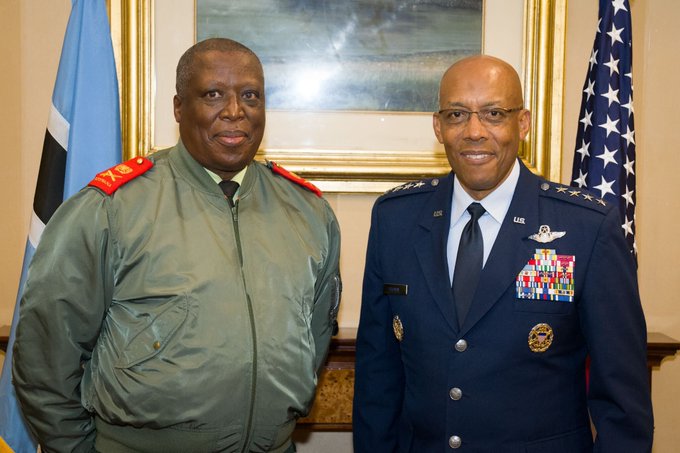
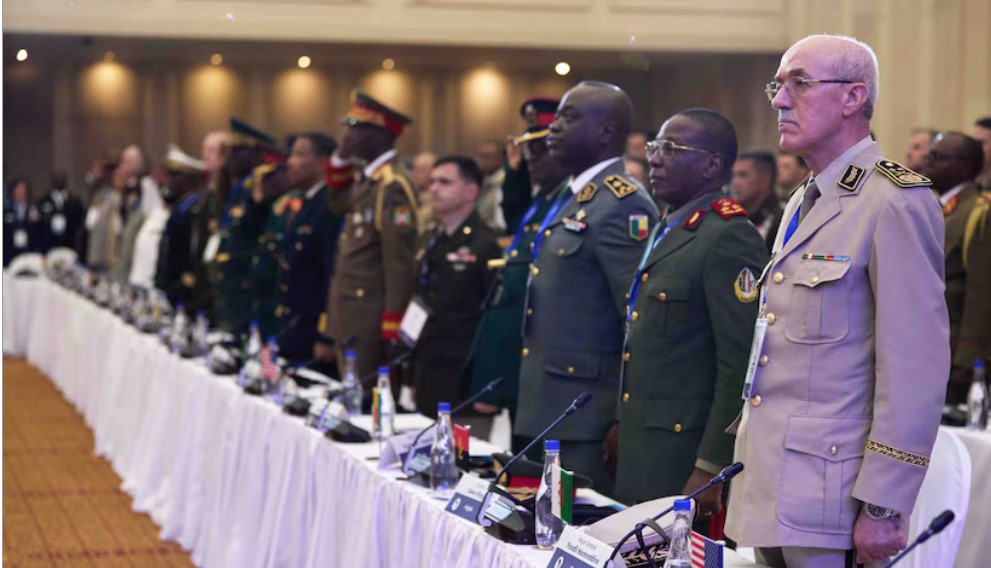
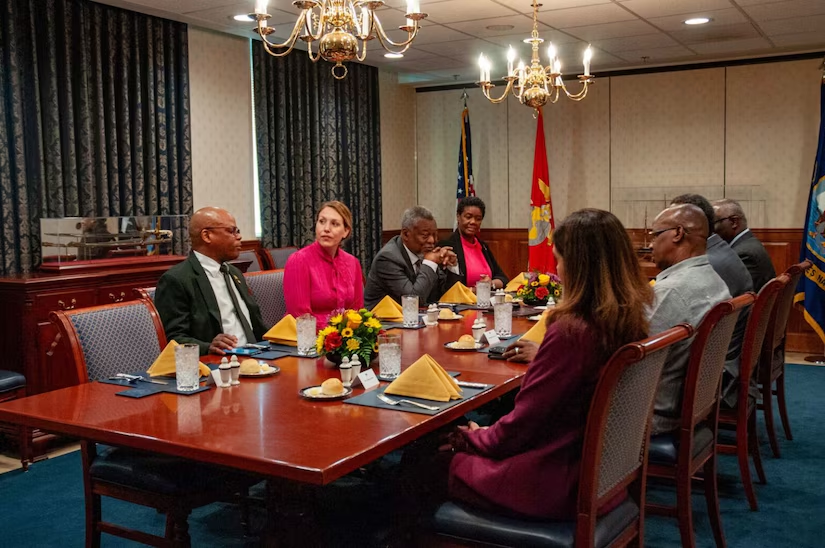
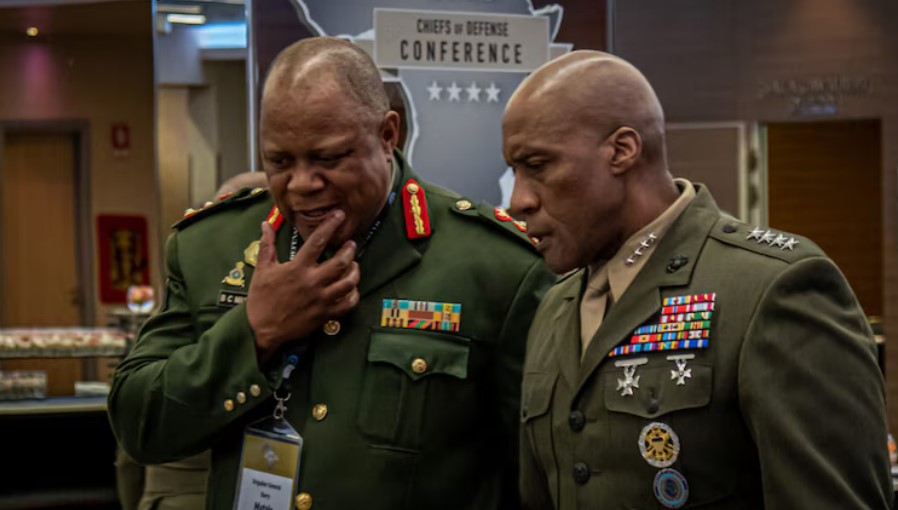
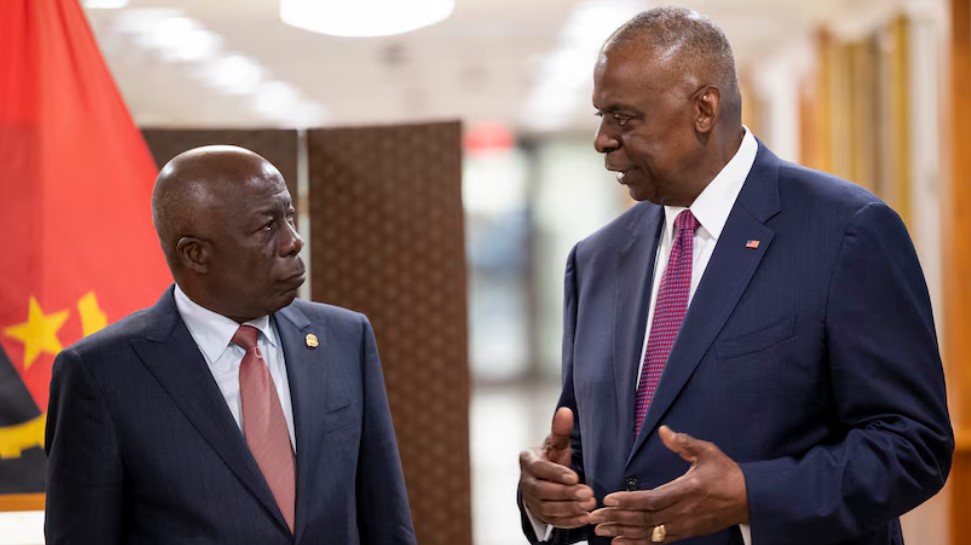
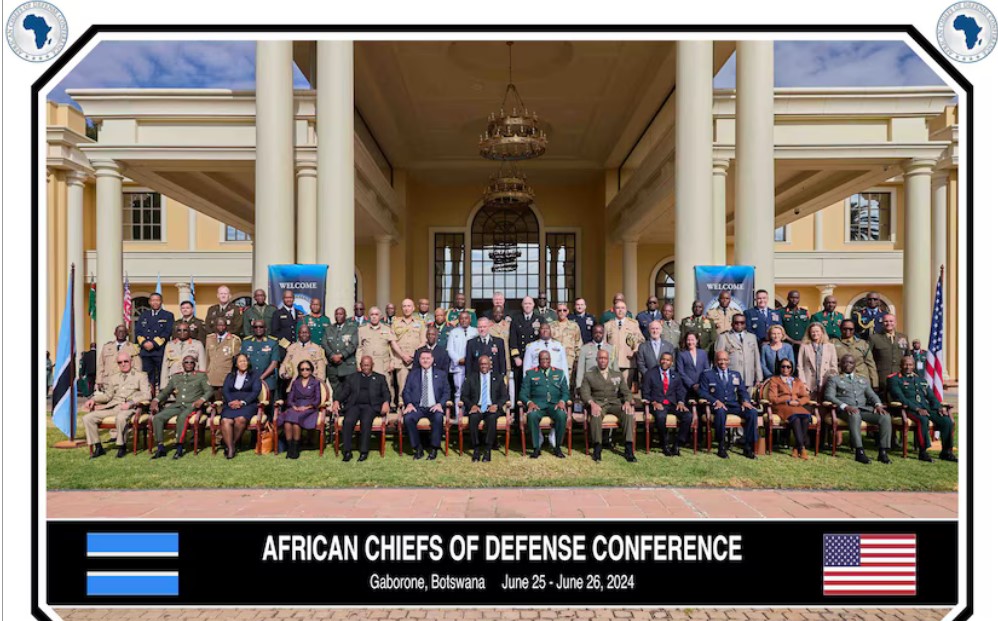
GABARONE — After being booted unceremoniously from the Sahel and watching Russian ships dock in Havana, the U.S. Dept. of Defense is finding it can not take the 80 Black majority nations of the Diaspora for granted.
For the first time, the African Chiefs of Defense conference took place in Botswana with Africom Commanding General Gen. Michael Langley on a charm offensive with more than 50 continental generals.
Similarly, a Navy climate discourse with Caribbean ambassadors came to Puerto Rico for the first time.
Secretary of Defense Lloyd Austin hosted his Angolan counterpart at the Pentagon after visiting the country for the first time.
Even a presumed success, the deployment of Kenyan police to Haiti has been torpedoed by unrest in Kenya itself.
Austin became the first defense secretary to visit Angola. “I traveled to Angola because of the importance of our defense partnership,” he said at the meeting. “I’m proud of all that we’ve done together to deepen our partnership, from maritime security to peacekeeping to defense policy and more.”
The military-to-military relationship between the two nations has the potential to grow, Austin said, and he specifically talked about strengthening cooperation in cybersecurity, as well as Angola’s potential participation in the Defense Department’s National Guard’s State Partnership Program.
“The geostrategic and the geopolitical space in which Angola is inserted requires special attention due to the deep historical, geographical, economic and cultural complexities of the community,” Angolan Defense Minister Joao Ernesto dos Santos told the secretary through a translator. “The Republic of Angola is … focused on an agenda of conflict prevention and resolution by peaceful means in interstate dialogue.”
Marine Corps Gen. Michael Langley, commander, U.S. Africa Command, discussed the highlights from the conference with the media today, which he said was informative and productive.
Themes of the conference were sharing ideas to bolster stability, security, human rights and prosperity among the 53 nations in Africom’s area of responsibility, he said, adding that discussions included challenges in deterring threats and building for crises response.
Threats to deter include terror organizations like ISIS, Al-Shabaab and Boko Haram, which thrive in areas of instability, he said.
The solution, Langley said, is to engage with each nation, identify their needs and come to an enduring solution with a whole-of-government approach to include U.S. agencies, regional governments and civil society — not just the Defense Department.
The general also discussed the negative influence of misinformation campaigns by Russia on the continent. “Getting the truth out there to counter disinformation is essential. According to the African Center of Strategic Studies, disinformation campaigns have directly driven deadly violence, promoted and validated military coups and cowed civil society members into silence and served as a smokescreen for corruption and exploitation.”
The Navy is set to kick off a two-month humanitarian and civic assistance deployment to five countries in the U.S. Southern Command’s area of responsibility as part of the United States’ continued commitment to fostering goodwill and improving interoperability throughout the region.
The Navy also conducted a tabletop exercise alongside Caribbean partner nations to explore ways to enhance climate readiness and resilience throughout the region.
Vaughn Miller, minister for the environment and natural resources for the Bahamas, said the exercise captured the wide-ranging impacts climate change is having in the region and further underscored the importance of regional partnerships in addressing the threat.
“The Bahamas is facing several challenges in the face of climate change, and over the last few days we’ve explored opportunities for cooperation with the United States and our regional partners,” Miller said.
He also noted a range of emerging climate-related threats that are reshaping the Bahamas and neighboring countries. Those include forest fires due to extended droughts and extensive damage to coral reefs which provide the first line of defense against storm surges.
The Bahamas just hosted the first Caribbean annual meeting of the African Export Import Bank with 5,000 attendees as the Diaspora increasingly relies on its own resources to tackle development. It means a new alignment with former colonial powers now seeking to secure commodities needed for cutting edge industries as China, Turkey, Korea and other nations seek economic ties.
Miller said the region must adapt to the new reality and mitigate against further harm.
“The United States is a strategic partner for us in terms of security and in times of disaster, and we look forward to opportunities to expand our engagement.”
Climate and regional interagency experts, including the U.S. Agency for International Development, the State Department, the Department of Energy and the National Oceanic and Atmospheric Administration attended the Navy-led engagement.
Meredith Berger, assistant secretary of the Navy for energy, installations and environment, and the service’s chief sustainability officer, said participants focused, in particular, on the importance of integrating local knowledge and establishing continuous communication among key stakeholders.
“The impacts of climate change, from increasing temperatures and droughts to changing precipitation patterns and rising sea levels, are impacting our forces, our communities and economies,” Berger said.
